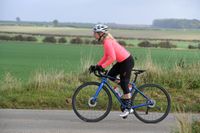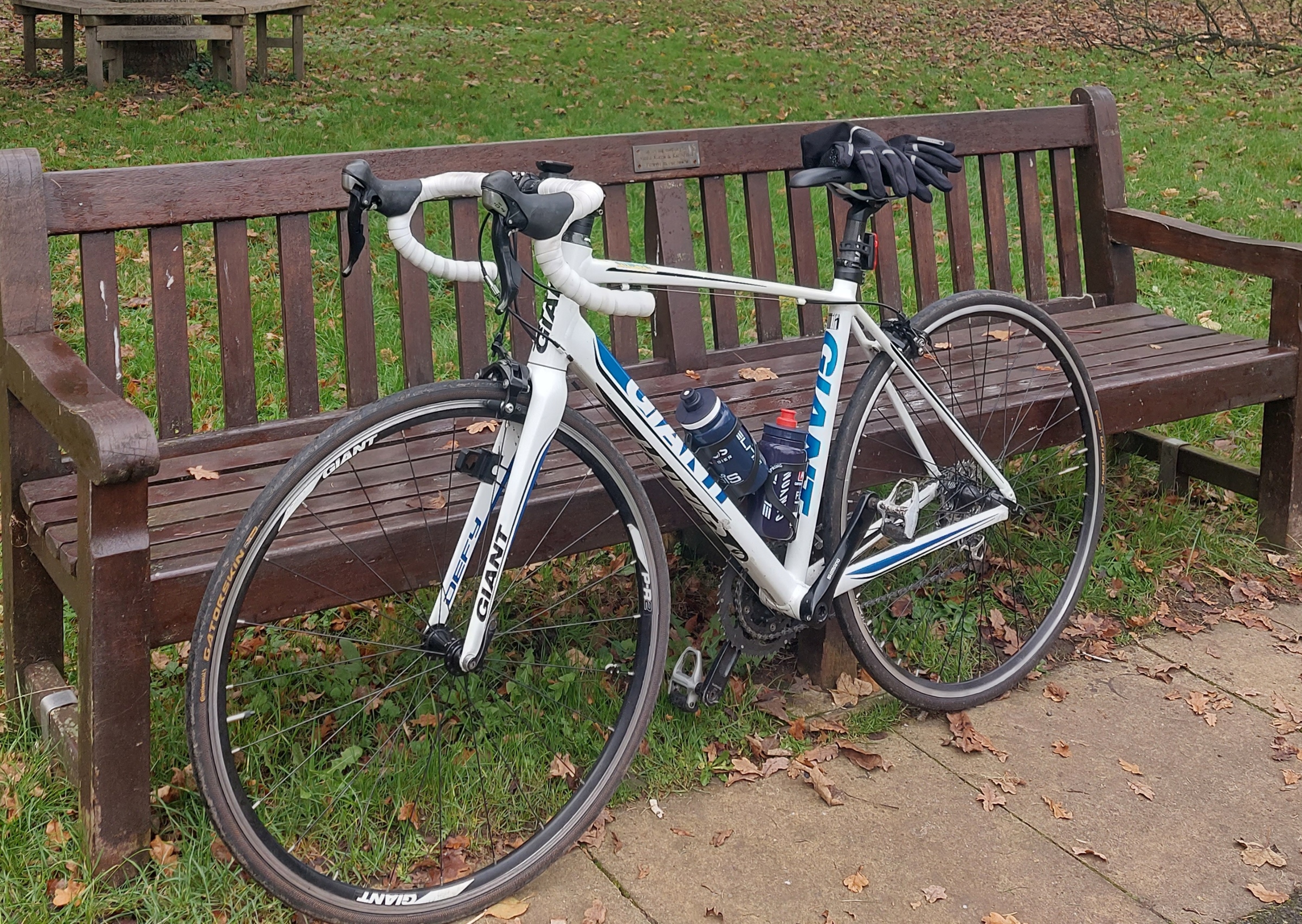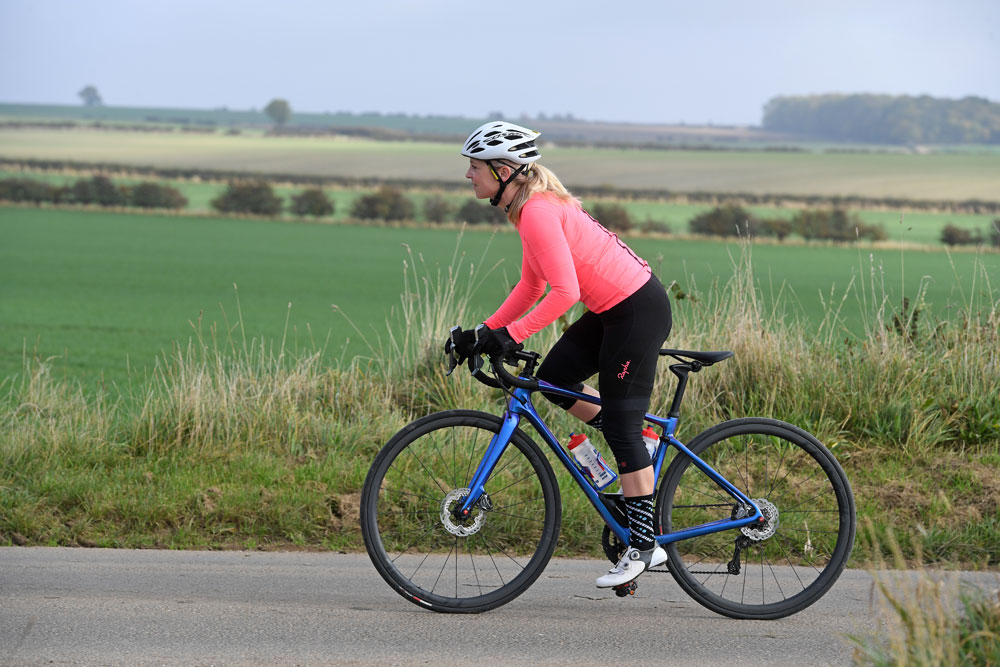'Don’t try and 'trick' your body into changing day into night': NHS nurse on riding through the fatigue of night shifts
If you’ve ever felt that you simply don’t have time to cycle, you’re far from alone. However, one NHS shift worker and avid cyclist has this advice: “just do it”.


The latest race content, interviews, features, reviews and expert buying guides, direct to your inbox!
You are now subscribed
Your newsletter sign-up was successful
“I work as a nurse in the UK National Health Service (NHS), long days and often long nights. You miss the structure and the motivation is difficult at times,” Dave O’Keefe begins. Night shifts can have serious impacts on your health but lifestyle changes can help. For O’Keefe - who has worked with the NHS for 25 years and covered shifts for decades - the answer is organisation, and sticking to a plan. “I have to be quite disciplined. Shift work means you lose the usual structure of days and nights, so, I have to give myself a structure,” he says.
“I look ahead at the 2-hour gaps I’ve got and make it work. I get home from a night shift at 9-10am. I then have a couple of hours sleep followed by a couple of hours gentle cycling. It is my reward for the night shift – surviving the nights. Once I’m a bit more recovered the next day I would do a bit of a longer ride.”
O’Keefe says he takes the Nike approach, “You just do it – sometimes you feel like you don’t want to – but you know it will make you feel good if you do.” With years of experience on shifts, his advice for others is that “rest, good food and exercise is the key. Accept that you are going to be tired, recognise that your body has limits. Even just going for a walk before you start a series of nights helps get you into a good mind set.”
Shift patterns as an NHS nurse
NHS shift patterns change due to the demands on the day of work, staff are asked to work different shift patterns each week. There is no standard start/finish time for nurses to allow for overlap of care.
Early shift (7.5 hrs) - approx 7.00am start
Late shift (7.5 hrs) - approx 3.00pm start
Night shift (10.75 hrs) - approx 11.00pm start
O’Keefe explains, “We work about 13 shifts per month with a mixture of days and nights in the same week. Patterns change but often it is two night shifts back to back before a break or switching to days. A night shift is around 13 hours long. We get a break of about 90 minutes or so - but only if there is time, we are often too busy.”
Making getting out as easy as possible removes barriers, essential when fatigue sets in. “I keep my bike prepared so I have confidence in my kit and it’s ready to go. I don’t do structured workouts, but I do the same loop after a night shift as it helps me gauge how my body is feeling and I don’t need to think too much about a route.”
Regardless of time pressure, O’Keefe always makes time for breakfast, “I normally have fruit and banana for breakfast and a coffee, you do need something. I go very gently at the start, I wear a heart rate monitor to be sure of that.”
O’Keefe sees issues created by a lack of activity daily. “I work in the cardiac section, I can see it in front of me.” In July last year, 11 local authorities were announced as taking part in a trial whereby health workers would be able to prescribe walking and cycling as part of the active travel social prescribing scheme, and it’s something O’Keefe would like to see more of. “I think people lack confidence to start or resume exercise. I see people who have had a cardiac episode and they need support to get back out and be active,” he said.
A big part of O’Keefe’s commitment to cycling is the mental health benefits, “when you are on front line services it can be hard, you need the respite.” Surrounded by people, constantly making decisions and listening to the needs of others takes their toll, “[Cycling] gives you time to find solutions to problems,” he says.
The latest race content, interviews, features, reviews and expert buying guides, direct to your inbox!

Dave keeps his Giant road bike ready to roll
O’Keefe says he enjoys the feelings of solitude riding on his own after a frenetic night shift, but in any event shift work doesn’t lend itself well to club rides, “I go out on my own these days, with my shift patterns it is ridiculous. A lot of my time off is during the week. I like the peace to be honest. I’m not anti-social, far from it, but I need that space when I am surrounded by people in an intense environment. I think anyone who works in the NHS needs that space, a lot of people I speak to say they need that stress release.”
Research has shown night shift work leads to weight gain, so diet on night shifts is important. “Stay hydrated keep away from sugar and highly processed food, stick to fruit and vegetables. I’ve adopted a lot of cycling nutrition ideas for getting through night shifts.” Finding a routine is important, listening to the needs of your body is even more so, “adopt a pattern of exercise that works for you. Don’t try and ‘trick’ your body into changing day into night. Give yourself enough space to exercise and rest.”
Even with shift work he believes it is possible, though harder, to live a healthy lifestyle, “with the right approach you can get through it. Don’t treat the day before your night as a ‘dead’ day – still get out and exercise. When you wake up after not much sleep, it can be hard to get out but the physical and mental health benefits are worth it.”
O’Keefe also advises that night shift workers ensure they have frequent health checks, “take vitamin D or make sure you get out in the sunshine when you can if you are working a lot of nights. Get a regular health check.”
“When you wake up from your night shift do some gentle exercise,” but he cautions, “don’t be a typical cyclist and start pushing intervals – you have to be very careful when you are fatigued. Look after your heart, you only get one!”
Hannah Reynolds interest in cycling began while studying for a degree in Sports Science at the University College Chichester and surrounded by elite level cyclists. She is now undertaking a PhD at Sheffield Hallam University investigating the use of e-bikes by older people.
A committed dabbler whose passion outweighed her talent Reynolds has competed across all disciplines of cycling bar BMX. In the very distant past she has been south-east road race champion, southern cyclo-cross champion and finished third in the European 24hr Solo mountain-bike champs in 2011. She was also the Fitness Editor of Cycling Weekly for 15 years.
Hannah Reynolds is author of several cycling books, France-en-Velo a guide to the ultimate 1000 mile cycle route from the Channel to Med; Britain's Best Bike Ride. LEJOG1000; A 1000 mile journey from Land's End to John o' Groats and 1001 Cycling Tips.
